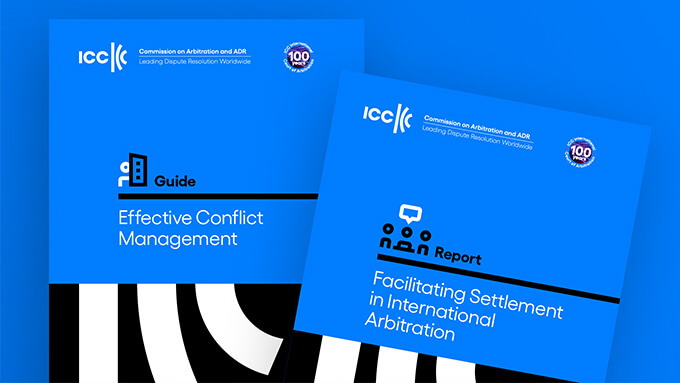International Arbitration in Banking and Finance Sector within the Context of the ICC Commission Report
Introduction
The International Chamber of Commerce (“ICC”) Commission Report on Financial Institutions and International Arbitration (“Report”) was released on November 9th, 2016[1]. The Report focuses on the view and expectations of financial institutions in the field of international arbitration. In this manner, the Commission’s Task Force worked on arbitral awards, doctrine, and policies, in addition to the surveys made on banking counsel and financial institutions and, hence, developed significant findings and recommendations. The Report covers an assessment on a wide range of banking and financial activities that could be subject to international arbitration, which will be covered in this article.
Overall Assessment of Arbitration
According to the Task Force, banks and financial institutions have been generally slanting towards national courts in main financial centers, such as London, New York, Hong Kong, Frankfurt and Singapore. Nevertheless, the 2008 global economic crisis has had a positive impact on international arbitration, which is in line with the emerging financial markets, and the rapid change in the regulatory environment.
Advantages and Drawbacks of Arbitration
The Report addresses the advantages of arbitration as the ease in enforcement of the awards, the ability to appoint sector specific arbitrators, procedural flexibility, confidentiality in certain banking businesses and neutrality[2]. Notwithstanding these positives, the possible drawbacks of arbitration are found to be on interim measures, which must be obtained from national courts in cases where arbitration institutions lack procedure, providing an emergency arbitration prior to the constitution of a tribunal. Similarly, the absence of summary disposition, high costs, and the lack of precedents due to confidentiality and transparency are found to be limitations of arbitration.
In order to cope with possible drawbacks of arbitration, the Task Force brings recommendations to financial institutions. The parties are suggested to comply with the techniques listed in Appendix IV and ICC Rules of Arbitration and Commission’s Guide Effective Management of Arbitration: A Guide for In House Counsel and Other Party Representatives, which contain a case management conference, limitation in the number of rounds of submission and document production, elimination of hearings and etc[3].
Discussions on Financial Instruments and Sectors
By the ever-changing characteristic of the finance sector, arbitration has become more preferred as a dispute resolving method in comparison to court litigation. The Task Force states that with the emergence of the number of cross-border banking and finance disputes, industry specific arbitration initiatives have also increased. The Report underlines that the banking and finance sector contains various fields that do not resemble each other and require in-depth understanding of the organizational models of the financial institutions, regulations and practices.
Derivatives and Advisory Matters
The Task Force confirms the rise of the application of arbitration on derivative related disputes as arbitration is more favorable, with the possibility to appoint a tribunal that has expertise in the field of derivatives, in comparison to litigation, which does not offer the same opportunities.
Under advisory matters, international arbitration is found to be the most suitable dispute settlement method for M&As, and advisory work on them, as it contains confidentiality and ease of enforcement. It is noted that risk of reputational damage of an advisor in public hearings due to negligence is one of the fundamental concerns that lead parties to choose arbitration, while the costs are the main cause that reduce the amount of M&A disputes brought before arbitral tribunals[4].
Investment Arbitration
The Report affirms the rise on the number of multinational investment and partnership agreements. It is indicated that the bilateral investment treaties and free trade agreements are insufficiently protective on investors and their products, and the definition of investment is unclear, which in turn reduce the predictability of investment protection for financial institutions. With the new era of treaty negotiations, the uncertainties are likely to diminish, as the drafters of international investment agreements are referring more specifically to financial instruments. States are found to be less keen to solve sovereign debt restructuring, which in turn makes room for arbitrators.
Regulatory Matters
Under the subject of regulatory matters, the Task Force initially focuses on the arbitrability of disputes on regulatory breaches. As regulatory matters are often cause for public policy concern, they are mostly brought before the national courts. Although claims on statutory provision breaches involving public rights and third part interests, for example, in securities law, had made a positive impact on the application of arbitration, the arbitrability of stated matters still varies from jurisdiction to jurisdiction. The Task Force states that arbitration is generally not considered as an appropriate dispute resolution mechanism as to the breach of regulatory provisions by financial institutions, but provides a reliable forum for civil consequences of the stated actions.
International Financing
On international financing, the Task Force finds that arbitration is favored over litigation if a party or an asset is located in an area with less reliable courts, or parties have failed to make a choice of law[5]. The project finance is found to be the most arbitration-friendly area as it involves complex disputes that would be better solved by experienced arbitrators in that field.
Islamic Finance
Regarding the disputes of Islamic Finance, the Task Force underlines the need for simultaneous compliance with sharia and secular laws of financial intermediation. The developments made in this field are noted as the establishment of International Islamic Center for Reconciliation and Mediation[6] based in Dubai, UAE and Kuala Lumpur Regional Centre for Arbitration[7] with its arbitration rules for disputes arising out of commercial agreements that are based on sharia principles. It is foreseen that a global framework for Islamic finance is likely to emerge in the forthcoming years and up to that point, arbitration will be the most suitable dispute resolution method to prevail over the principles of sharia. Secular arbitration is another option suggested by the Task Force that would require arbitrators to apply English or New York Law.
Asset Management
Lastly, the use of arbitration in asset management is found to be low due to cost, long duration of the jurisdiction, and the absence of stare decisis concerns. Similar to the findings of the Task Force in various other fields, disputes in asset management which, in general, are rooted from the prediction of a financial portfolio’s performance, are found to require an expert with sufficient knowledge in this field[8]. It is noted that such experience may be lacking in some courts, while neutral arbitrators with expertise in this field are globally available.
Conclusion
The Report of the Task Force aims to enhance the experience of international arbitration among the financial institutions and sectors by drawing a detailed picture of the past and present. It is observed that the attention of the banking and finance sector on arbitration will keep on rising in line with the elimination of misconceptions on international commercial arbitration.
[1] The Commission Report on Financial Institutions and International Arbitration accessed at: http://www.iccwbo.org/Advocacy-Codes-and-Rules/Document-centre/2016/Financial-Institutions-and-International-Arbitration-ICC-Arbitration-ADR-Commission-Report/, Date of Access:13.02.2017.
[2] Georges Affaki / Claudia T. Salomon , “ICC Report Identifies Financial Institutions’ Experience and Perceptions Of International Arbitration”, Kluwer Arbitration Blog, accessed at: http://kluwerarbitrationblog.com/2016/12/22/booked-icc-taskforce/, Date of Access: 12.02.2017.
[3] “Commission’s Guide Effective Management of Arbitration: A Guide for In House Counsel and Other Party Representatives”, ICC Publication, February 2015, accessed at: http://www.iccwbo.org/Advocacy-Codes-and-Rules/Document-centre/2014/Effective-Management-of-Arbitration-A-Guide-for-In-House-Counsel-and-Other-Party-Representatives/, Date of Access: 13.02.2017.
[4] Arnaud de La Cotardière / Claudia Cavicchioli, “The Need for Confidentiality in Arbitration Proceedings Relating to Advisory Matters”, Kluwer Arbitration Blog, accessed at: http://kluwerarbitrationblog.com/2016/12/26/need-confidentiality-arbitration-proceedings-relating-advisory-matters/, Date of Access: 12.02.2017.
[5] Charles Nairac / Jean-François Adelle, “Using Arbitration to Resolve International Financing Disputes”, Kluwer Arbitration Blog, accessed at: http://kluwerarbitrationblog.com/2016/12/23/using-arbitration-to-resolve-international-financing-disputes/, Date of Access: 12.02.2017.
[6] The arbitration procedure of International Islamic Center for Reconciliation and Arbitration may be accessed at: http://iicra.com/en/misc_pages/detail/47025a8fda, Date of Access: 13.02.2017.
[7] The Arbitration Rules of Kuala Lumpur Regional Center for Arbitration may be accessed at: http://klrca.org/Arbitration-KLRCA-Arbitration-Rules-(Revised-2013), Date of Access: 13.02.2017.
[8] Henri-Paul Lemaitre / Duarte Gorjão Henriques, “Financial Institutions and International Arbitration – Asset Management”, Kluwer Arbitration Blog , accessed at: http://kluwerarbitrationblog.com/2016/12/27/financial-institutions-and-international-arbitration-asset-management/, Date of Access: 10.02.2017.
All rights of this article are reserved. This article may not be used, reproduced, copied, published, distributed, or otherwise disseminated without quotation or Erdem & Erdem Law Firm's written consent. Any content created without citing the resource or Erdem & Erdem Law Firm’s written consent is regularly tracked, and legal action will be taken in case of violation.
Other Contents

Emergency arbitration addresses the need for interim protection before the arbitral tribunal is constituted in institutional arbitrations. Arbitral institutions establish short timeframes to ensure parties can obtain interim relief quickly. For example, the International Chamber of Commerce (“ICC”) requires that the emergency...

International arbitration remains the preferred mechanism for resolving complex cross-border disputes. Yet despite its advantages—neutrality, enforceability, flexibility—arbitration is frequently criticized for being too slow, too expensive, and too procedurally heavy. Often, parties proceed through hearings and...

For arbitral awards rendered in international commercial arbitration to produce legal effects in foreign jurisdictions, they must be subjected to proceedings for “recognition” and “enforcement.” This process is governed by the New York Convention as well as by the provisions of the Law on Private International Law...

Arbitrability, the determination of whether a specific subject matter can be resolved through arbitration, constitutes a fundamental aspect of arbitration within the scope of international commercial dispute resolution. This concept draws a delicate balance between party autonomy—a fundamental principle of arbitration...

The recognition, enforcement, and annulment of foreign court and arbitral awards in Türkiye are processes in which public policy emerges as one of the most critical criteria for review, both in theory and in practice. The Court of Cassation decisions determine the direction of case law regarding the scope and...

As is well known, the action for annulment of objection is a special type of lawsuit regulated under Article 67 of the Turkish Execution and Bankruptcy Law No. 2004 (“EBL”). The primary objective of this action is to nullify a debtor’s objection to execution proceedings. Despite its procedural function of facilitating...

On 16 December 2024, the London Court of International Arbitration (“LCIA”) released its third batch of challenge decisions covering the period from 22 July 2017 to 31 December 2022. The LCIA has also issued a detailed commentary that identifies key legal themes and analytical trends, offering practitioners...

The International Chamber of Commerce (“ICC”) has published its report on the dispute resolution statistics for 2023 (“Report”) , shedding light on the evolving landscape of international arbitration...

Syndicated loans undoubtedly hold a significant position among global financing models. In 2023 alone, 3,655 syndicated loans were provided to companies in the US, with their total value reaching USD 2.4 trillion...

Preliminary attachment refers to the temporary seizure of a debtor's assets to secure a creditor's claim. While it serves as a vital instrument for safeguarding the rights of creditors, it is subject to specific and stringent conditions under Turkish law to prevent any potential misuse...

One of the most important reasons for parties to choose arbitration is the opportunity to freely choose their arbitrators. This freedom granted to the parties also distinguishes arbitration from proceedings before state courts, where the parties are deprived of the power to determine the judges who will conduct the...

The 6th Civil Chamber of the Court of Cassation ruled on October 12, 2022, that national courts have jurisdiction over objections to provisional measures in international arbitration disputes...

The declaration of intent to resolve disputes through arbitration is the fundamental constituent element of an arbitration agreement. To speak of a valid arbitration agreement, the parties' intention to arbitrate must emerge in a way that leaves no room for dispute...

In the wake of the evolving dynamics of commercial transactions, the Netherlands Arbitration Institute Foundation (NAI) announced new arbitration rules . 2024 NAI Arbitration Rules are in force as of 1 March 2024 and will be applicable on proceedings filed on or after this date...

With the global shift to online activities, domain names play a crucial role in identifying businesses. It is more common than ever for a domain name to be registered that is confusingly similar to a trademark or service mark...

The ICC Commission on Arbitration and ADR (“Commission”) published a new guide and report with the aim to increase awareness on alternative dispute resolution (“ADR”) mechanisms to prevent disputes and strengthen the relationship between all stakeholders.The Guide on Effective Conflict Management...

Mergers and Acquisitions (“M&A”) are restructuring of companies or assets through various types of financial transactions, such as mergers, acquisitions, purchase of assets, or management acquisitions. This Newsletter article covers M&A disputes being solved before arbitral tribunals.

In the context of arbitration practice, the principle of revision au fond means that the courts can not examine the merits of a dispute when reviewing an arbitral award. This principle is most commonly encountered in set aside and enforcement proceedings. An arbitral award is evidence of the parties’ willingness...

Under Turkish law, parties may agree on the settlement of disputes that have arisen or may arise, regarding the rights that they can freely dispose of, by arbitration. However, disputes which are not subject to the will of parties, such as the disputes relating to in rem rights of immovables, bankruptcy law...

On 4 September 2020, a research project “Does a Right to a Physical Hearing Exist in International Arbitration?” was launched by an International Council for Commercial Arbitration (“ICCA”) taskforce. Due to the Covid-19 pandemic, many arbitration hearings were held online. Many institutional rules...

Dubai International Arbitration Center amended its Arbitration Rules on 25 February 2022. The 2022 Arbitration Rules were published on 2 March 2022 and came into effect on 21 March 2022. The Rules will be applied to arbitrations that are filed after 21 March 2022; unless parties agree otherwise...

In the aftermath of the Achmea decision, controversies on intra-EU arbitrations continue. Most recently, the Paris Court of Appeal has annulled two arbitral awards rendered against Poland. Meanwhile, the Higher Regional Court of Berlin has refused to declare that an Irish investor’s ICSID claim...


Under Turkish law, the legal remedy that can be applied against arbitral awards is an annulment action. Law on International Arbitration No. 4686 (“IAL”) finds its application area in arbitration proceedings where Turkey is the place of arbitration...

It is well known that following a decision of the Court of Justice of the European Union, problems arose related to arbitration of intra-EU disputes, and particularly arbitration under the Energy Charter Treaty...

Arbitration in corporate law contains controversial elements in many respects, especially the issue of arbitrability. Even in legal systems where these disputes are considered to be arbitrable, uncertainties remain on whether an arbitration clause can be included in the articles of...





Arbitration has benifited from a great increase in the use of technology which has directly effected the conduct of proceedings. More particularly, with digitalization, the way that we conduct arbitration proceedings has been changed to reflect the current needs of parties, with an aim of increasing time...
































































